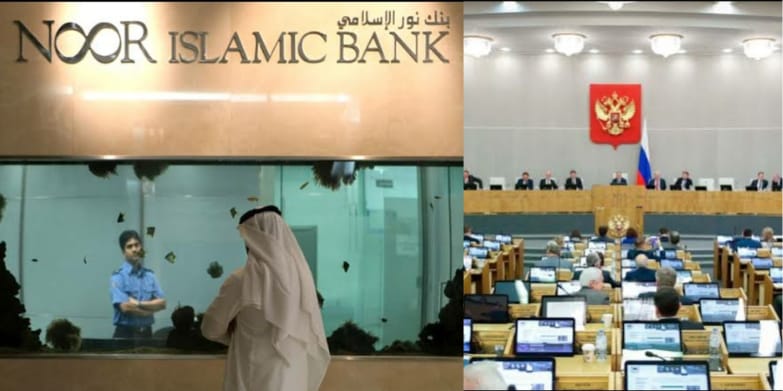On 19th July 2023, the Russian Parliament gave approval for the two-years pilot program to introduce the Islamic banking in four different parts of the country, and it is estimated to start from 1st September 2023. This idea was passed under the consideration of the lower house of the Parliament, the State Duma, since last year. The pilot program is said to be carried out in the regions of Chechnya, Tatarstan, Bashkortostan and Dagestan with some possibilities of expansion in other regions upon the agreement between the Bank of Russia and the government of Russia.
The Islamic banking is referred to as Sharia-compliant finance, which prohibits the lenders and investors from engaging themselves in the collection and lending of interest payments.
The legislation introduces a legal regime to experiment in some specified regions by providing a fresh financial framework for the banking operations in the Islamic regions. However, there is a scope for further expansion in the legislation. In connection with the Bank of Russia, the government holds the power to expand the experimental program in other regions, it has the possibilities for expanding the reach of the Islamic banking sector across the country.
This is one of the important moves that has the capacity to reframe the financial structure of the country. The State Duma of Russia has given the positive response to a 2-year pilot program that would guide the Islamic banking in four regions of the nation. This particular decision, which was pending from last year, will play a critical role in the banking sector of the country.
The regions of Chechnya, Tatarstan, Bashkortostan and Dagestan will witness the kick start for the new era in the banking sector from 1st September 2023. This experimental program which is scheduled to carry out will test the banking sectors in these four Islamic regions, contributing to the new financial option for the traditional banking system in the country.
This particular decision has the potential to achieve two goals simultaneously. Firstly, it can attract the foreign investment, and thereby strengthen Russia’s economy. Secondly, it has the capability to calm down the discontent among the minority groups in the specified regions of the pilot program, which can cultivate the feelings about the inclusivity and participation in the nation’s financial sector.
As Russia comes out with the pilot program, all eyes will be vigorously observing Russia to see how this particular experiment will work in the Islamic banking sector. The outcome of this program is not only beneficial for Russia, but to the whole world which has a large banking sector.

